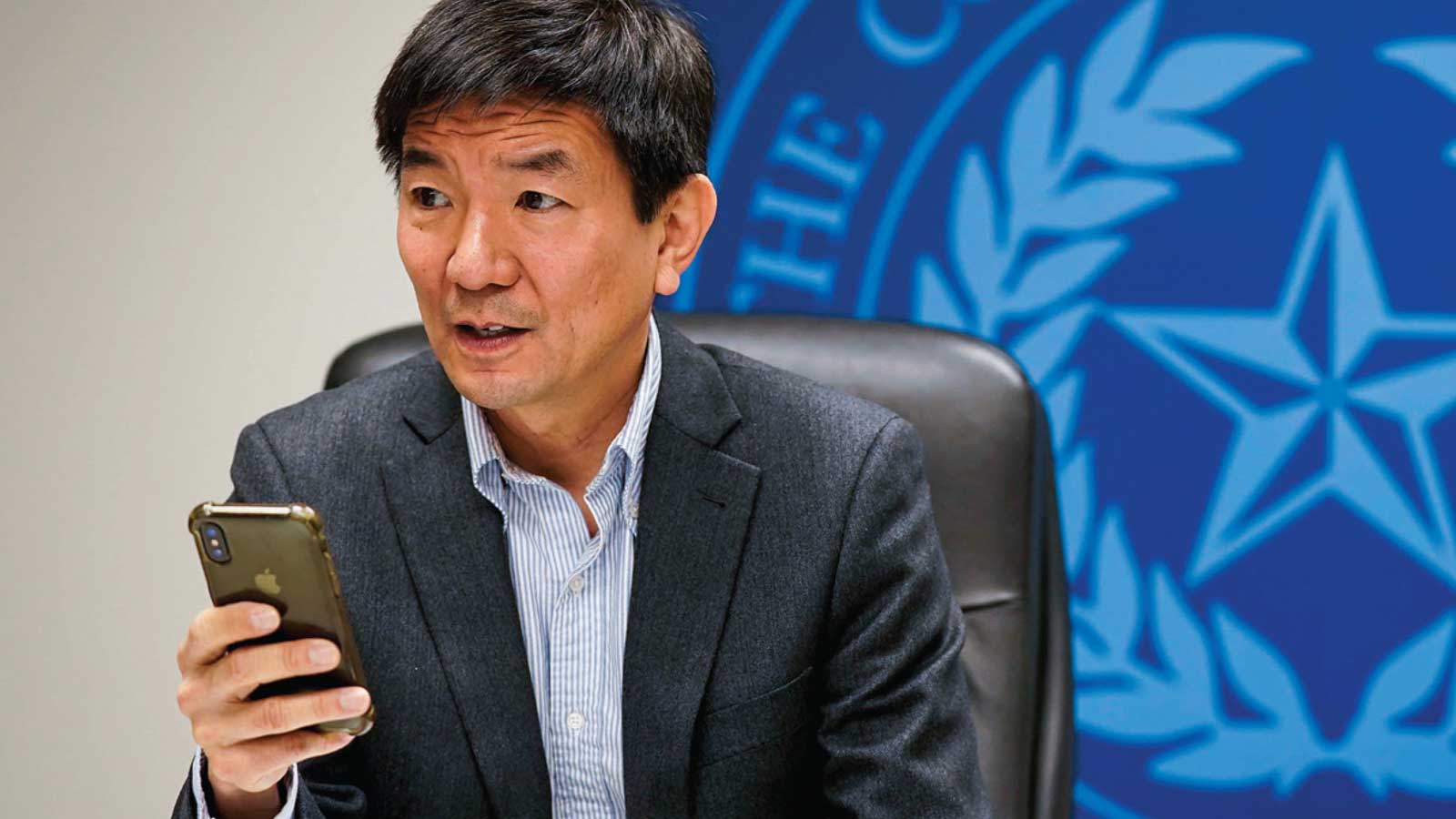After graduating from Rice with a degree in civil engineering, Philip Huang ’82 earned an M.D. from the University of Texas Southwestern Medical School and a Master of Public Health from Harvard University. Huang worked for two years as an Epidemic Intelligence Service (EIS) officer for the Centers for Disease Control and Prevention (CDC), followed by stints with the Texas Department of Health and Human Services and as medical director and health authority for the city of Austin, before moving to Dallas, his hometown, in 2019.
When did you first become worried about COVID-19?
We started hearing about it in December 2019. I was having conversations with other health department directors, and we were all trying to figure out what was going on and what the impact was going to be. Dallas County Judge Clay Jenkins is the head of emergency response, so we were working very closely with him. We were the first county in Texas to issue a stay-at-home order, March 12, 2020, which was shortly after our first case.
How did your experience working for the CDC’s EIS help prepare you for the pandemic?
The CDC EIS program is the most respected training for front-line epidemiology (“shoe-leather” epidemiology). It also connected me to a premier network of epidemiologists, both at the CDC and at public health departments around the country. Tom Frieden, who went on to become the CDC director, was actually in my class of EIS officers. That network was invaluable during the pandemic when it came to communicating and sharing resources with other health departments.
How did you approach communications in those early days?
I tried to be as transparent as possible and tell what we knew, what we didn’t know and what we were doing about it. Early on, we held telephone conference calls with nursing home administrators, school district superintendents and other key partners. I remember telling superintendents that they needed to think about what they would do if they had to switch to remote schooling. At the time, I could tell that none of them really thought something that dramatic was actually going to happen.
What were the biggest challenges you faced as the pandemic continued through the spring and summer?
After we issued the stay-at-home order, our numbers plateaued. We convened a public health advisory council with epidemiologists, infectious disease experts, the president of the County Medical Society and the Hospital Council, and others from the UT Southwestern Medical Center. All the experts and recommendations agreed that you needed to have an improvement in the indicators for at least 14 days and see consistent declines in new cases before you could think about reopening. But before we could get there, Governor Greg Abbott started opening things up around Memorial Day. All we were able to do was issue a guidance document that told people what our local experts thought was safe to do and that “just because you can, doesn’t mean you should.”
Let’s skip forward to the vaccine rollout. How did you manage that?
The first rollout was to hospitals. I think we got our first dose allocations Dec. 23, 2020, at 8 a.m., and we started delivering vaccines 2 1/2 hours later. The initial plan was to use multiple providers, just like with flu vaccines. Over 850 local providers signed up — pharmacies, grocery stores, community health clinics. The problem is that there was a limited supply of vaccines and huge demand. The state made the decision to pivot to mass vaccination hubs. We had less than a week to set up our hub. We chose Fair Park and initially set up a walk-up system, and then it evolved to a drive-through vaccination process. We created a waitlist and started making appointments. [In mid-May] we gave out our 470,000th vaccine, and we have administered up to about 12,000 doses per day.
We’ve read that you are also a student of magic. Does this hobby connect to your professional life?
When I was growing up, I performed at birthday parties and Cub Scout banquets. I’ve actually been more involved with music as I play trumpet and piano, and I was very active in the Rice MOB. Over the past few years, I have been trying to learn jazz improvisation. I think both magic and music have helped me to keep an awareness of making sure you address the needs of the audience, how to work as a team and also how to keep things going no matter what else is happening or what else may go wrong — the show must go on!
This article was originally published in the Summer 2021 edition of Rice Magazine.

